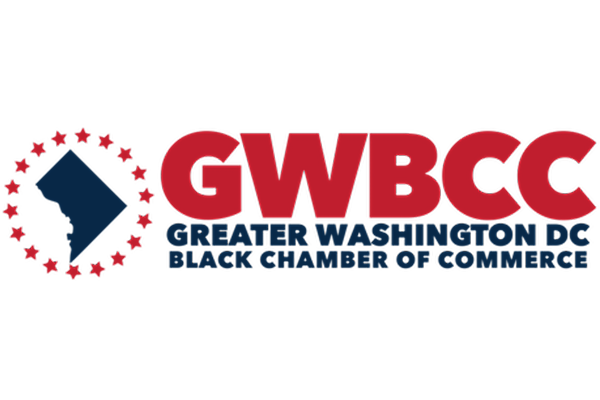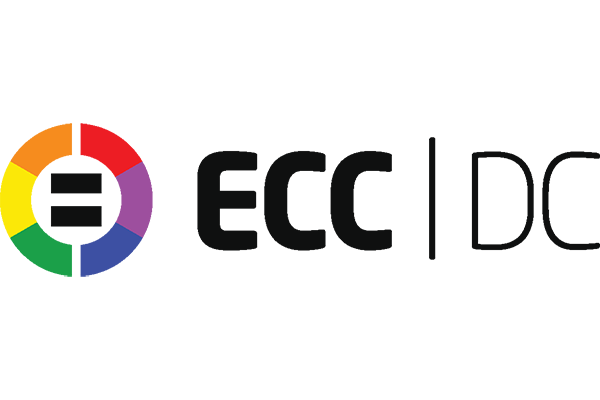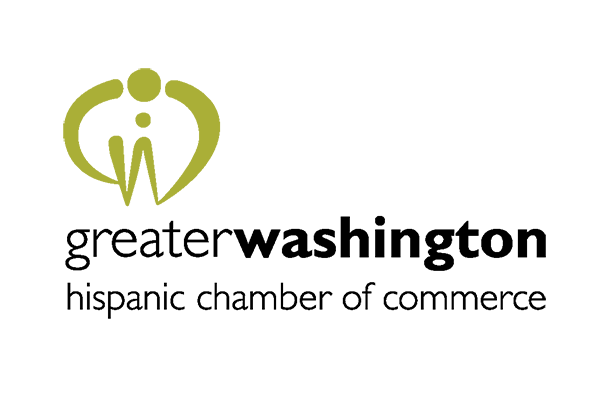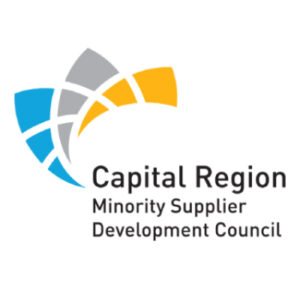About Risk Cooperative
Supplier Diversity
Varied perspectives are critical components of effective risk management. Risk Cooperative’s supplier diversity capabilities adds value to our client and partner relationships.
The National Minority Supplier Development Council (NMSDC) reports that Fortune 500 companies are spending 98% of their total spend with non-MBE businesses, despite pledging targets of 10% or more. As minority-owned business, certified by the National Minority Supplier Development Council for the Capitol Region (CRMSDC), Risk Cooperative is uniquely qualified to help businesses implement their supplier diversity goals.
The public good, corporate values, and good business are naturally integrated risk management pillars. Few other MBE firms can provide the broad scope of services and complex risk placement capabilities that Risk Cooperative offers. We embrace opportunities to align our talents and expertise with initiatives that increase supplier diversity, serve marginalized communities, and generally support greater diversity, equity access and inclusion.
Our program includes:
MBE Spend
As a minority-owned insurance brokerage and provider of risk advisory services, we help organizations meet their MBE spending goals on services they already buy.
Proposal Partner
Serving as a Tier 1 provider in the Minority Business Enterprise (MBE), Risk Cooperative is a qualified partner for MBE designated contracts as a natural extension of our existing capabilities.
MBE Support
Our expertise helps other minority-owned businesses address risks that keep them from achieving their full potential.
Risk Cooperative is a proud member of these organizations:
Resource Library
Risk Cooperative Chief Revenue Officer Les Williams is honored to participate in a Black History Month event hosted by Gallagher to Ring the New York Stock Exchange Closing Bell Just seven months ago Risk Cooperative obtained our CRMSDC MBE Certification and began our journey to help companies meet supplier diversity goals with Tier 1 risk hellip
Risk Cooperative Chief Revenue Officer, Les Williams, is honored to participate in a Black History Month event, hosted by Gallagher to Ring the New York Stock Exchange Closing Bell.
Just seven months ago, Risk Cooperative obtained our CRMSDC MBE Certification and began our journey to help companies meet supplier diversity goals with Tier 1 risk and insurance solutions. At that time, Chief Revenue Officer and Co-Founder, Les Williams, noted, “Our team specializes in helping businesses build operational resiliency, and in our experience, diverse perspectives are critical to effective risk management – the public good, inclusivity, and business success are not in conflict.”
While the insurance industry, and much of financial services, lags behind in diversity and inclusion, there are some organizations doing good work to make improvements. The Gallagher Connect Partner program enables independent MBE brokerages, like Risk Cooperative, to amplify our supplier diversity capabilities while providing clients with solutions to increase their diverse spend. The New York Stock Exchange launched the Board Advisory Council in 2019 to address the critical need for diverse, inclusive leadership on public and private company boards, believing categorically that “if the leading companies of today plan to be the leading companies of tomorrow, they will need diversity at the very top,” writes Elizabeth King, President, ICE ESG & Chief Regulatory Officer at Intercontinental Exchange (ICE). As Risk Cooperative Chairman, Dante Disparte wrote in Risk Management Magazine under the title Pale, Stale and Male: Does Board Diversity Matter? in 2018, “The role of the board must evolve beyond check-the-box compliance and move to embrace a holistic and integrated strategic oversight of ESG, enterprise risk management, leadership and culture. An essential part of achieving this objective is to have a properly diversified board.”
On February 23, these threads came together as our friends at AJ Gallagher rang the New York Stock Exchange Closing Bell, with our own Les Williams in attendance to represent Risk Cooperative as a member of the Gallagher ConnectPartner network. To honor the occasion, Flutterwave Founder & CEO, Olugbenga ‘GB’ Agboola rang the NYSE Closing Bell at the BlackHistoryMonth event. Since 2016, the fastgrowing fintech firm has become one of Africa’s highest-valued unicorns, a payment infrastructure connecting African businesses to the global economy. As Flutterwave harnesses an opportunity for exponential growth in emerging markets, they’re also committed to creating greater financial inclusion – one of Risk Cooperative’s core interests.
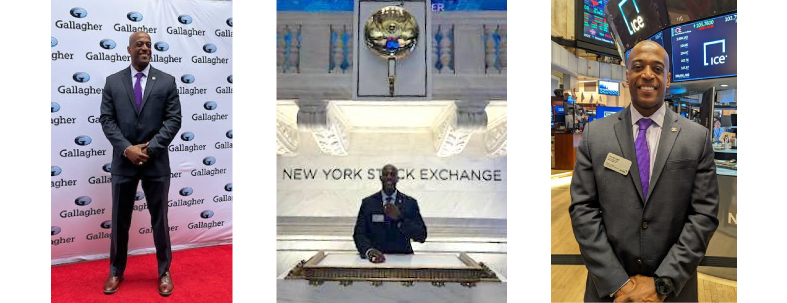
WATCH CLOSING BELL:
Olugbenga Agboola Rings the Closing Bell
SUPPLIER DIVERSITY RESOURCE LIBRARY:
PRESS RELEASE: MINORITY CERTIFICATION
CAPABILITIES DOCUMENT
SUPPLIER DIVERSITY PROGRAM
Have questions? Send us a message.
Washington, D.C. – Risk Cooperative, a minority-owned and operated insurance brokerage and risk advisory firm, announces its official Minority Business Enterprise (MBE) certification by the Capital Region Minority Supplier Development Council (CRMSDC). With this designation, the firm is uniquely positioned to provide Tier 1 insurance and risk advisory solutions to Fortune 2000 firms across the country. Founded in 2014 by a team of risk and insurance executives and licensed in all 50 states, D.C. and Puerto, Risk Cooperative is globally recognized in the fields of enterprise risk management, emerging risks, global insurance solutions, and operational resiliency.
While supplier diversity initiatives are growing in popularity, the National Minority Supplier Development Council (NMSDC) reports Fortune 500 firms still fall far short of their 10-15% minority spending goals, averaging just 2%.
“Supplier diversity programs target a wide range of procurement services, however, insurance and risk management is often excluded due to lack of qualified minority providers. With the CRMSDC certification in hand, Risk Cooperative will bring its full, Tier 1 capabilities to the table and help fill this void.” says Andres Franzetti, Risk Cooperative’s Co-Founder and Chief Executive Officer. “Supplier diversity is not just about meeting key benchmarks, it’s also about helping organizations build operational resiliency. The last few years have shown how critical a diverse network is to successfully navigate emerging risks. Risk Cooperative is now able to assist on both fronts.”
With significant discrepancies between population and minority representation in the business world, the MBE certification increases minority-owned firms’ economic competitiveness while mitigating procurement risk by supporting vendor diversification.
“Our team specializes in helping businesses build operational resiliency, and in our experience, diverse perspectives are critical to effective risk management – the public good, inclusivity, and business success are not in conflict,” says Les Williams, Chief Revenue Officer and Co-Founder of Risk Cooperative.
Risk Cooperative is a member of the CRMSDC, featured in many diverse supplier directories, as well as advocacy organizations including the Greater Washington Hispanic Chamber of Commerce, the Greater Washington Black Chamber of Commerce, and the Equality Chamber of Commerce DC Metro Area.
***
About Risk Cooperative
Risk Cooperative is an independent and certified minority-owned insurance brokerage and risk advisory firm. Licensed in all 50 states, D.C. and Puerto Rico, Risk Cooperative helps organizations address risk, readiness and resilience across all classes of risk – including comprehensive employee benefits, life and health, property and casualty, cyber and other specialty lines. Appointed with all major carriers and the Lloyd’s of London market, we place domestic and international insurance solutions to help meet clients’ needs.
About CRMSDC
CRMSDC, established in 1972, is celebrating its 50th anniversary as a not-for-profit economic development organization supporting growth in Maryland, the District of Columbia, and Northern Virginia through programs and services that help corporations enhance the diversity and innovation of their supply chains. CRMSDC is one of 23 regional affiliates of the National Minority Supplier Development Council, the only nationally recognized MBE certifying authority. CRMSDC also operates the U.S. Department of Commerce’s Virginia Minority Business Development Agency (MBDA) Business Center.
Media Inquiries:
media@riskcooperative.com | 202-688-3560
Historically, models used by insurance companies in the U.S. have adversely affected the ability of poor and non-white individuals to obtain adequate coverage. Using zip codes, home ownership status, credit scores, and other demographic information as a proxy for assessing risk, traditional underwriting models have created unequal access to insurance as a financial safeguard, and consequently reduced some families’ ability to build generational wealth.
Longstanding bias in traditional insurance pricing models
There are laws against discrimination in underwriting, including some, like the Fair Housing Act, that even attempt to address disparate impact on protected classes as separate from the intent of certain practices. However, the issue remains, leading The National Association of Insurance Commissioners (NAIC) to form a special committee in 2020 to determine ‘what barriers exist in the industry that potentially disadvantage people of color and historically underrepresented groups.’
The auto insurance industry has been particularly guilty of archaic underwriting standards. From marital status to educational attainment, rating systems for auto carriers penalized prospective customers for aspects of their lives they cannot control as well as life choices that should have no bearing on their ability to qualify for affordable coverage.
Creating fair insurance for all
Loop insurance, a startup founded by John Henry and Carey Nadeau, aims to address these discriminatory pricing practices in the auto insurance space. Founded on the belief that everyone deserves affordable auto insurance, they use proprietary AI to focus on factors that have a direct correlation to how consumers drive.
According to Loop, their technology does not punish customers for their occupation, credit, education, or homeownership status. In fact, they provide consumers with a breakdown for how much an insurance rate will vary based on each deciding factor. Loop uses just two key metrics to give its customers a price: road conditions and driver behavior. By collecting data about how and where someone drives, Loop can set insurance premiums that are less dependent on demographic details out of their control.
Equitable Insurance does not have to be a fantasy
The trend of underwriting without using traditional factors is expected to increase. In fact, other industries outside of insurance have adopted this practice. Meritize, a lender which looks beyond FICO scores, is an attractive alternative for student loan borrowers. This lender considers an applicant’s academic or military achievements to enhance credit worthiness and improve loan options. ResidentScore, Transunion’s unique scoring model – used by landlords to screen renters – identifies the characteristics of renters least likely to default on rent payments by using actual rental outcome data to predict the likelihood of evictions.
Though Loop is currently tackling affordable and equitable access in the auto insurance market, their mission could be applied to other insurance markets. While it can be argued that bias will continue to exist in AI – since code is programmed by people, who bring their biases into a digital framework – committing resources and taking actionable steps to address inequity for all will provide insurers with increased trust from traditionally excluded consumers, resulting in affordable options by which consumers can protect themselves against the daily risks of living and increased revenue for insurers. This is truly a win-win situation for all stakeholders.
The diversity, equity and inclusion movement has gained considerable traction over the past year.
But there is a sense among some that the insurance industry needs to go beyond roundtable discussions, guidance and sensitivity training to develop solutions that actually bridge the gaps in experience and trust that still exist between the races.
Among The Council’s membership, partnerships with minority-owned enterprises are garnering good feedback and true opportunity for minorities in the insurance placement process. More than that, brokers are learning how to work with carriers to push the envelope on underwriting so blanket denials in low-income and minority areas become a little harder to do.
Opening the Door
One such brokerage is Birwood Services Group, a minority-owned firm based in Detroit, that has teamed with Lockton to undertake an assertive effort to improve diversity and inclusion in the insurance and financial services industry.
“In order for D&I to be sustainable, it must be modernized,” says Ken Hurtt, president and CEO of Birwood. “Prior approaches in commerce and trade have run their course and are ineffective for current objectives. What America can do reliably is what America is—and that is being an open, free-market, competitive, capitalist system of commerce and engagement. Thus, a modern approach to diversity must be embedded in this context to endure.”
The trauma surrounding the death of George Floyd was a high price to pay to awaken society—across ethnic lines—to the reality of America’s challenge on racism, Hurtt says.
“But that did happen, and it was a wake-up call,” he says. “Now that we’re coherent, we need to design diversity to be delivered through a systemic process of inclusion to advance the healing process. That methodology is opportunity flow. Put diversity and inclusion in the industry’s mainstream procurement ecosystem by merging it into the competitive bid process.”
Birwood’s business model hews to that philosophy, and as the broker of record, it uses its role as project and process manager to locate minority business enterprises (MBEs), vet them and include them in its bid process. It’s not a given that the included company will win the contract, but it’s an opening that most MBEs would not otherwise get.
For example, an RFP from an account might seek employee benefits as part of its package. Birwood would go out to multiple companies for bids and would include MBEs that match the opportunity profile, based on Birwood’s supply chain vetting process. Those MBEs are on the table just like every other bidder; from there, Hurtt says, evaluation is driven by the competitive assessment process.
“This is important, because if we don’t infuse MBEs into the flow of opportunities, they get left out of potential business they’re qualified for,” he says.
The opportunity goes both ways. Minority businesses get a shot at the RFP, and purchasers usually are glad for the chance to partner with minority businesses.
“Many companies want to consider MBEs, to have that kind of diversity in their business relationships,” Hurtt says. “When we put them in the mix, that’s usually new and welcome. We are going to consider [the MBE] just as we would any other participant in the RFP. Also, increasingly clients are insisting on having this MBE presence in the process as part of a commitment they have to their diversity initiatives.”
Birwood provides that pathway. But it doesn’t have to do it alone.
Partnering with Lockton gives Birwood the benefit of excellent market access and expanded expertise and resources, as well as Lockton’s respected name and credentials. So how did the two come to collaborate?
“We had the idea of partnering with a minority brokerage for some time,” says Brian Roberts, Lockton’s chief diversity officer, “but it takes the right person at the right time. When we came across Ken, we said, ‘This is a good match.’ We weren’t necessarily looking for a minority firm, but he had our vision and he was in the Detroit area, which was a marketplace we wanted to expand in.”
More Than Just a Contract
One of the problems minority businesses have faced in the insurance industry—as in many other sectors—is being put on a contract solely for the purpose of fulfilling a minority inclusion requisite. Many large contracts now require representation of at least one minority-owned business in the RFP process. Unfortunately, that is often a check-the-box exercise: the proposal includes a minority business that’s in on the bid or even final contract, but it gets a payment and little actual involvement in the rest of the transaction. Under this perfunctory model, the minority business may get a nice chunk of change, but it doesn’t gain market share, it isn’t integrated into a network where it can show its stuff and develop expansion opportunities and it doesn’t increase its expertise or reputation. It’s a short-term financial windfall with little promise for sustainability.
That’s not a proposition that Lockton or Birwood finds appealing.
“Oftentimes, a minority broker is involved in a purely transactional way,” Roberts says. “For example, Big Broker A is working a large power plant account, and the city says it wants minority participation in this contract. Broker A finds a minority broker, pays them a nominal amount, but never gives them that opportunity to grow or hire. We said this can be done better, so it became part of an intentional effort to create wealth and jobs in underserved communities.”
These contracts become a vehicle for more than just excellent insurance and risk management for policyholders. They are part of broadening participation in the economics of success.
“If you think about insurance jobs, they really are stable and facilitate family life,” Roberts says. “Not only does Birwood bring these firms in; it gives these minority vendors access to the Lockton train as well.”
And how do carriers and clients feel about this intentional effort to transform diversity and inclusion from a conversation into an operational model?
“It’s too early to tell on ROI since we’re so early in the program, but the response from clients and carriers has been really good,” Roberts says. “I mean, you have to be determined; it doesn’t just happen. You have to put the effort in, but we are committed to it. And Ken and his team are making good connections.”
Birwood has so far focused mostly on the benefits front, but starting in January, P&C carriers may be hearing from the brokerage. It’s harder in the property and casualty space for minority brokerages, Roberts says, because so few of them reach the minimum revenue threshold to get and keep carrier appointments. But, he says, that’s just another reason to keep pressing forward.
Building Resiliency in Minority Communities
RCM&D, a Unison Advisors Company, is pursuing its own minority business action plan. It initiated a strategic partnership in 2018 with Risk Cooperative, a Lloyd’s coverholder based in Washington, D.C., after years of working with the brokerage in a less formal way. While RCM&D focuses mostly on mid-market and larger accounts, Risk Cooperative’s bread and butter is in the small market.
One of the goals of the two brokerages is to bring more creative ways to building resiliency in minority communities.
“We are minority owned and operated,” says Andres Franzetti, CEO and co-founder of Risk Cooperative. “We try to work with minority companies as we grow our business as well. But when we look at how to create resiliency in minority communities, it’s not just bringing them into the contract process—that’s one piece—but can we create programs that are more geared to these subsets. For example, bespoke insurance solutions for diaspora populations that are sending money back home that protect income during difficult situations, whether it’s a natural disaster or COVID or a recession.”
Part of the work with minority businesses involves partnering on the financial side—not just insurance.
“What we find with minority businesses is they have restricted access to capital,” says Les Williams, chief revenue officer and co-founder at Risk Cooperative. “We have to be very cautious about what they can afford. We might say, ‘Given the fact that you have X employees and X growth prospects, we think you need $2 million in cyber coverage.’ They say, ‘Hey, that’s 2.5 times what a $1 million policy would be.’ So we help them with payment structuring or financing.”
Risk Cooperative’s good relationships with carriers help in crafting creative financing solutions, but the brokerage can also leverage RCM&D’s size and gravitas where needed.
In a recent case, Williams says, “We got on the phone with RCM&D and the carriers and spent an hour and a half—then the carriers were willing to sign on to the account. That’s a great aspect of this partnership.”
Franzetti echoes the value of the relationship with RCM&D. “We work with all the major carriers,” he says, “but in working with RCM&D, two plus two equals 10. We don’t just use them for placements, though. It’s really a partnership. We strategize about solutions for some of these hard-to-place clients. Is there a trend? Is there an opportunity? Can we get them more access? Part of the process is looking at these groups that are being underserved and seeing what else is out there where we can expand. These are great risks if we can structure the right kind of programs.”
One of the problems brokers find is a built-in bias against inner-city and low-income businesses. Underwriters (and others) tend to have preconceived notions about certain types of business, certain locations and certain financial profiles. Franzetti says those notions need to be “recalibrated.”
That takes an extra investment in these accounts, both in time and personal capital.
“It goes beyond just brokerage and requires greater collaboration with partners and carriers,” Williams says. “As brokers, we don’t do our carriers justice if we’re not bringing them as close to the client as possible. It may be an inner-city property, but let’s look at what mitigating factors it has against risk. We can bring the underwriter that information and maybe get a better outcome.”
Pushing Back on Broad-Brush Denials
Plenty of brokers have seen routine or thoughtless denials, but when it came to affordable housing, Matt Kahn, executive vice president and commercial division director at RCM&D, got some pushback from a client, which got his wheels turning. Kahn’s client wanted to know why the carrier was asking if the multi-family residential building he was seeking to insure was an affordable housing account. He thought it smacked of discrimination.
“We see this all the time in affordable housing,” Kahn says. “The underwriter simply says, ‘We don’t want to write affordable.’ I think that’s kind of lazy to do that without actually looking at the property—just to say ‘no’ based on a belief that these are high-loss properties.”
Kahn wrote an opinion piece for an insurance trade magazine on the incident that suggested there could be systemic racism at play. While he concedes that laziness is probably the actual reason, he does point to some potentially problematic tendencies in underwriting, such as the propensity to decline an account without fully investigating its risk potential.
The story that is told about inner-city communities is painted with a broad brush, some brokers say, one that tells a general story about an area but not much about individual risks. Crime scores are one of these plot elements.
Crime scores are generated for locations based on publicly available data on police reports or other judicial records. Though they advertise granularity, meaning type of crime and specific location, a question arises as to how most of the data are applicable to business insurance. For example, an act of sexual violence, a home burglary or a car theft—or even a cluster of those—isn’t necessarily an indicator of future general liability or property claims from a business. Nonetheless, those data will generate a “crime score” for a business address simply because the incidents occurred nearby.
“How are these personal crimes relevant to property insurance?” Kahn asks. “How are you correlating these statistics to generate a property rating?”
Can a broker get around these scores by having the underwriter come see the property, come see how the owners and managers secure the premises, light the area, etc.?
“You can try to sell the risk to the underwriter,” Kahn says, “but it’s an arduous process.”
But it’s an effort Kahn has been willing to take for his clients. In his most recent case, he got a rejection by an underwriter for an affordable housing account, but he went to the underwriter’s boss and her boss’s boss with that article he wrote. He pointed out the embedded problems, and since then they’ve been underwriting his affordable housing properties.
“If everybody were trained on how to push back, it would be better,” Kahn says. “For example, if a carrier declines an account because they ‘don’t write affordable,’ it’s not one of their ‘preferred businesses,’ and we know education also isn’t on the list of things they write but we also know they wrote a school for us, we can go back to them and say, ‘You have written outside your preferred segments before; why not here?’”
Growing Up and Out
One key to expanding the diversity in insurance—both the clients served and the minority businesses involved in RFPs—is intentionality. But with such a small smattering of brokerages pursuing this effort, can it be sustained, especially as they grow? Will, for instance, Risk Cooperative outgrow the small-cap market where most minority businesses now reside?
“Our focus is on small- to mid-cap right now,” Franzetti says. “When you’re talking about MBEs, by nature they’re a little smaller or in the early stages, where they tend to be in the greatest need. Our plan is to grow with our clients and keep those relationships as they increase in size and revenue.”
Part of that plan is to constantly cultivate partnerships with others who can serve accounts that are outside Risk Cooperative’s wheelhouse.
“We have partnerships with much smaller brokerages that can work with super small businesses,” Williams says.
And how does Risk Cooperative develop this network of partners?
“We do a lot of conferences, thought leadership pieces, etc.—many of our partners approach us,” Franzetti says. “It takes a lot of effort and time. This is why there’s not much of this approach in the industry. We have our internal metrics and standardized process for vetting each partner.”
Tapping into RCM&D’s opportunities is part of that outreach. Williams points to a diversity-and-inclusion forum that Risk Cooperative did with RCM&D a couple years ago. Seemingly a routine risk-management panel on preventing discrimination lawsuits, the presentation—like many others the firm does—awakened participants to the idea that a minority-owned brokerage is out there intentionally working with underserved communities.
Those kinds of events generate interest from prospective minority partners, who then can be assessed for quality and fit. It’s an ongoing process nationwide, Franzetti and Williams say. Birwood’s Hurtt concurs: cultivating opportunities and partners is a continuous effort.
“I come across partners, vendors, other potential participants for contracts through a variety of means,” Hurtt says. “I keep them in mind. I make sure to note them and to follow up to see where or if we can work together or present an opportunity to them. That’s a lot of what Birwood is about. We’re going to give the best options to the client, but I believe some of those best options are going to come from minority businesses.”
Leadership, Anyone?
While a lot of brokerages are trying to figure out how to make diversity, equity and inclusion work, too many are stuck in their roundtable discussions and sensitivity training sessions. Developing new products, new ways of presenting options to clients and new training that enlightens and emboldens producers on assisting underwriters requires much more creativity, effort and investment.
It cuts into time spent developing and placing other accounts, and it may not yield immediate or consistent results. That’s where brokerage leadership has to make some decisions about what level of investment a firm is going to make in changing the system.
The easiest, most expeditious way to put together a bid isn’t going to be the pathway to diversity and minority inclusion and opportunity in the insurance industry. There are challenging questions that need to be considered.
How do you compensate a producer who spends extra time to get minority businesses covered or businesses that will benefit minority communities covered? Is there someone at your firm tasked with bringing MBEs into contracts? How can you establish an ROI? How will these efforts be publicly disclosed? Can they be marketed?
Additionally, traditional patterns and products may not be the right ones to serve the minority market. To address that problem, Risk Cooperative has established a risk innovation hub called RC Labs.
“A lot of the work we do focuses on new and emerging risk categories, a whole range of partners and clients,” Franzetti says. “It’s a place where we can partner with organizations to help develop new insurance programs, blockchain, working with academic partners on research. It’s a bit unique in our industry. It is focused on areas of the market that are unserved or underserved.”
Overcoming systemic exclusion of minorities in the insurance chain requires a top-down approach that includes setting goals and creating targeted solutions based on research, evidence, metrics and rewards. And, Hurtt says, a raw commitment to engage.
“It’s futile to try to deal with these issues through conversation, because we are simply not going to ever heal the wounds,” Hurtt says. “We need to move to a modernized systemic approach that fosters inclusion in the American ecosystem, which fosters collaborative trust. That’s where we as an industry can really make a difference.”
Washington, D.C. November 13, 2020 – Risk Cooperative CEO and Co-Founder, Andres Franzetti, has been named a 2020 Business of Pride Honoree by the Washington Business Journal on October 2, 2020. The award recognizes Mr. Franzetti’s tireless advocacy of diversity in the workplace and in the broader community. Carrying this philosophy forward, Andres and his co-founders have established Risk Cooperative as a highly diverse, minority and LGBTQ led firm in an industry that is often perceived as more conservative and predominantly male-dominated.
“I am honored to join such a distinguished group of business leaders. Building a diverse financial services firm, comprised of all races, genders and nationalities was an important goal in founding Risk Cooperative. Diversity amongst our highly skilled team only helps to foster innovation and provide unique perspectives that are vital to navigating an ever evolving and complex risk landscape for our clients,” says Andres Franzetti.
This focus on inclusion doesn’t stop at the front door. Risk Cooperative engages with the insurance world on issues of D&I, climate change and financial inclusion. Beyond continuing to build a diverse and inclusive firm, Risk Cooperative continues to focus on creating accessibility to insurance and risk transfer solutions for underserved communities, helping them to build financial and operational resiliency.
The Business of Pride Awards 2020 celebrations were conducted virtually this year for COVID safety precautions. More information about the other honorees can be found at the Washington Business Journal.
About Risk Cooperative
Risk Cooperative is a specialized strategy, risk and insurance advisory firm licensed to originate, place and service innovative risk-transfer and insurance solutions in all 50 states, D.C. and Puerto Rico. Risk Cooperative helps organizations address risk, readiness and resilience through a comprehensive service and solution offering in partnership with leading insurance companies and value-adding partners.
For more information visit: www.riskcooperative.com
Media Inquiries:
media@riskcooperative.com | 202-688-3560
Read online or download
Read online, or download.

